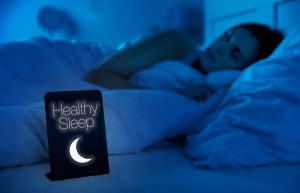Sleep Hygiene: The Secret to Better Rest
A good night’s sleep is something everyone deserves. It’s not just about feeling refreshed, sleep allows neurons to reset and helps consolidate long-term memories.
Yet, many people struggle to create the right environment for quality rest.
That’s where sleep hygiene comes in. Understanding what it is and how to practice it can ease sleep troubles and set you up for healthier nights.
What is Sleep Hygiene?
Sleep hygiene is the collection of habits and practices that influence how easily you fall asleep and how well you stay asleep. While melatonin the so-called “hormone of darkness” naturally rises in dim environments, many of our daily choices can disrupt its production.
In some cases, doctors may prescribe artificial melatonin as a short-term fix for insomnia. But with the right strategies, you can encourage your body to make it naturally, no pills required.
Stick to a Routine
Consistency is key. Going to bed and waking up at the same time every day strengthens your body’s internal clock, teaching it when to release melatonin so you feel sleepy at the right time.
It might feel like a hassle at first, but a steady routine pays off with deeper, more restorative sleep.
Light Matters
Ever heard that scrolling on your phone before bed is bad for you? That’s because blue light tricks your brain into thinking it’s daytime, suppressing melatonin release.
As evening sets in, dim the lights, swap harsh screens for warmer tones, or use blue-light filters. These small tweaks help signal to your brain that it’s time to wind down.
Cut Caffeine in the Evening
Caffeine blocks adenosine, a natural sleep-promoting chemical, and can make drifting off more difficult.
It also stimulates your adrenal glands, raising cortisol (the stress hormone), which works against melatonin. Even if it doesn’t ruin sleep quality, an evening coffee can definitely delay bedtime.
Keep Your Bedroom Cool and Comfortable
Your body temperature naturally drops before and during sleep. A slightly cooler room around 18–20°C (65–68°F) helps this process. Pair it with breathable bedding and a supportive pillow for an optimal sleep environment.
Limit Alcohol Before Bed
Alcohol may make you feel drowsy, but it disrupts REM sleep (the deep, restorative phase). That’s why a nightcap often leads to restless sleep and early waking. Save drinks for earlier in the evening if you want quality rest.
Get Daylight Exposure
Natural light during the day helps regulate your circadian rhythm. Just 20–30 minutes of morning sunlight can boost your alertness, improve mood, and make it easier for your brain to know when it’s time to wind down later.
Try a Wind-Down Routine
Falling asleep isn’t just about flipping a switch, it’s about easing your mind and body into rest. Try reading a book, stretching, practicing deep breathing, or journaling for a few minutes before bed. These calming rituals signal to your brain that sleep is coming.
Reserve Bed for Sleep
Your brain learns to associate your bed with what you do in it. If you’re working, watching TV, or endlessly scrolling on your phone in bed, your brain won’t link it with rest. Keep the bed for sleep, so lying down automatically primes you for relaxation.
Make Sleep Enjoyable
Sleep shouldn’t feel like a chore. Instead, think of it as a reward, the time your body gets to rest, repair, and recharge. When you actually look forward to sleep, it becomes easier to fall into it naturally.
By improving your sleep hygiene with these simple steps, you can boost melatonin naturally, fall asleep faster, and truly enjoy the process of winding down each night.

